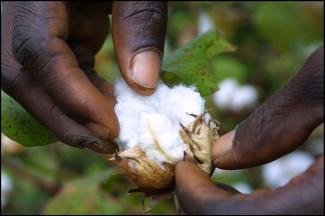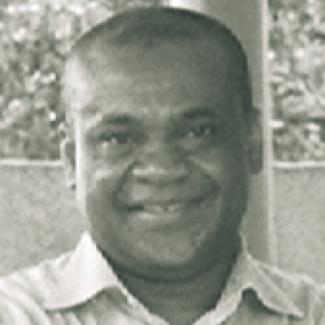Recession
Growing dependence on Benin’s informal sector
 Jean-Michel Clajot/Lineair
Jean-Michel Clajot/Lineair
Signs of the economic downturn are everywhere. For example, hundreds of rusty long-haul vehicles are parked along the 35-kilometre long Cotonou–Porto-Novo expressway. Moreover, many cars are put on sale. Their owners cannot afford them anymore, and many need cash urgently.
Indeed, some sprawling warehouses have been shut down for almost two years. The crisis set in when neighbouring Nigeria decided to close the land borders (see my contribution in Focus section of D+C/E+Z e-Paper 2020/05). The reasons, according to Nigeria’s federal government, were smuggling and security concerns.
The border closure hurt many businesses that had specialised in importing foreign-made goods to Benin and then exporting them to Nigeria. Those goods included rice, wheat flour, cooking oil and tomato paste for example.
Members of the business community represent a big chunk of Benin’s middle classes. According to anecdotal evidence, many have defaulted on bank loans. In any case, formerly prospering people are now facing deprivation.
Apart from owners, top managers of businesses and high-ranking government officials also belong to the middle class. The former tend to be affected by the ongoing crisis, while the latter have been losing perks and privileges in the course of state-sector reforms. To some extent, their scope for generating black income by demanding bribes has been reduced too. Lysiane Gnansounou, who has a good job in the financial sector, says that many have been forced to scale down their lifestyles and consumption patterns.
To belong to Benin’s upper middle class actually means to be quite rich. Its members own – and live in – multi-storey houses in peaceful, clean and relatively secure neighbourhoods of Porto-Novo and Cotonou, the two main cities. They often have expensive Italian furniture and household appliance made in Japan, China or South Korea. Status symbols also include fully air-conditioned Toyota Land Cruisers or flashy Mercedes Benz four-wheel drives.
The coronavirus pandemic has had an impact, of course. The typical big weekend parties have become quite rare. Before coronavirus, prosperous people liked to spend heavily to celebrate weddings, naming ceremonies or birthday parties. Funerals and voodoo rituals were often quite expensive too.
The middle class generally has an international outlook. Those who can afford it, travel to Morocco or South Africa for medical attention, while those at lower echelons opt for Côte d’Ivoire or Senegal. Holiday trips abroad are appreciated as well, with the most affluent spending vacations in France, Italy or Spain.
Well-to-do families send their children to private schools and colleges, where costs sometimes amount to the equivalent of more than € 1,500 per year and child. Not all who are considered middle class can afford to do so, of course.
A few years ago, the African Development Bank (AfDB) published a report in partnership with the Organisation for Economic Co-operation and Development (OECD) and the UN Development Programme (UNDP). One message was that, in Africa, people with an annual income equivalent of about € 4000 could be categorised as middle class. The average monthly income in Benin, by contrast, was only about € 62 before the pandemic started.
The economic downturn that started with Nigeria’s border closure has been made worse by the pandemic, of course. As consumer demand went down, the formal sector cut employment. The share of Beninois who entirely depend on the informal sector, where incomes are low and social protections do not exist, has grown.
The authorities in Benin are now pinning their hopes on good cotton and cashew nuts harvests in 2021. That might start a recovery. The Economist Intelligence Unit stated in April that, after Benin’s contraction last year, it expects 2.4 % growth in 2021 and even 4.5 % in 2022. The London-based analysts warned, however, that a lack of vaccine supplies was slowing down the West African country’s recovery.
Karim Okanla is a media scholar and freelance author based in Benin.
karimokanla@yahoo.com

